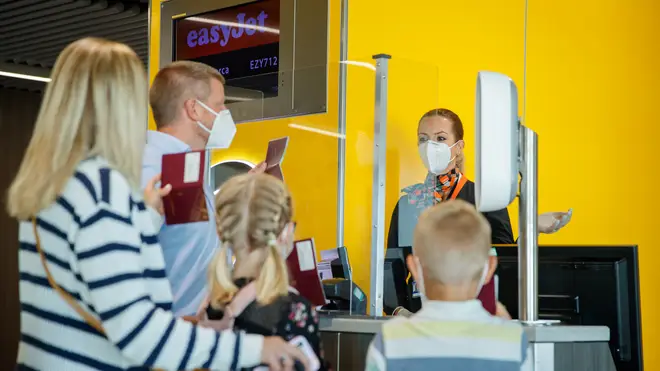
Dom Joly 3pm - 6pm
2 June 2020, 07:13

Air bridges linking Britain and some countries with low coronavirus infection rates could be in place by the end of June meaning travellers would not have to self-isolate on their return to the UK.
The Government is understood to be considering the quarantine free plans which would see those entering the UK from safe countries would be exempt from Home Secretary Priti Patel's plans.
Current plans mean all international arrivals - apart from people carrying out a limited number of specified roles - would need to quarantine for 14 days from Monday.
As we reported yesterday the plans were widely criticised by the travel and tourism industry with one airline industry boss suggesting a quarantine would "kill" the UK travel industry.
Further details of the quarantine proposal are expected to be put before Parliament on Tuesday.
Listen & subscribe: Global Player | Apple Podcasts | Google Podcasts | Spotify
Agreements would need to be reached with other countries before any policy could be introduced. The Telegraph reported that Prime Minister Boris Johnson is "personally in favour" of the idea.
The Guardian reported that quarantined travellers would be able to go food shopping, change accommodation and use public transport from airports.
But a Government source said people would be expected to stay in one home, use private transport and only venture outside where absolutely necessary.
It comes as MPs return to Westminster after the Government dropped virtual proceedings, despite concerns that shielding politicians will be unable to attend.
The Government has tabled a motion preventing the resumption of virtual voting that allowed MPs to have their say from afar during the pandemic, but opposition parties are seeking to retain it.
As lockdown restrictions were eased and thousands of young children in England returned to primary school on Monday, the Government sought to defend its test and trace system.
Health Secretary Matt Hancock said the contact-tracing system was "up and running" and was "successful" following reports of problems with technology and staff saying they were being paid up to £27.75 per hour for doing nothing.
Asked during the daily press briefing why some contact tracers had no work, Mr Hancock said 25,000 had been hired and it was a good thing there were so many.
He said: "It's successful, I'm very glad to report that those who are asked to isolate by the contact tracers are expressing the willingness to do so and we track that very carefully.
"The level of incidence of disease has come down and so actually we have more capacity than we need, this is a good thing.
"I think to err on the side of having too many contact tracers is the right side to err on. I'd rather have too many people trained and ready to go."
Professor John Newton, the Government's testing co-ordinator, said the system was working well, adding: "We do have a lot of capacity."
But one nurse working as a contact tracer told reporters the necessary systems were "not in place".